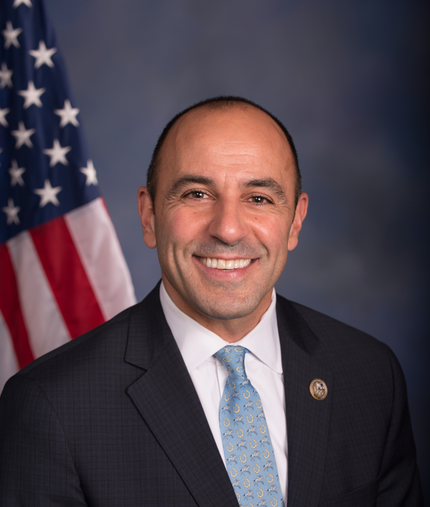Democratic Congressman Jimmy Panetta has moved forward on two initiatives to support the nation’s agricultural industry. Panetta, who represents the 20th congressional district, which includes major growing regions in the Salinas and Pajaro Valleys and parts of Santa Clara Valley, has joined forces with Republican Congressman Rodney Davis of Illinois to establish the bipartisan Congressional Agriculture Research Caucus. The Caucus will focus on agriculture research, innovation, and mechanization efforts as Congress prepares for the 2018 Farm Bill.
“As a representative of the Salad Bowl of the World, I believe it is of the utmost importance to equip our growers, shippers, and farmworkers with the most effective tools possible,” said Congressman Panetta in a prepared statement. “Strategic investments in research for plant breeding, crop protections, and mechanization will support the future success of the agriculture industry while also helping to address major concerns relating to resource conservation and labor shortages.”
Panetta is also co-sponsor of a bill to legalize the immigration status of farm workers. The bill would create a program that allows agricultural workers and their families to apply for a “Blue Card” that gives them legal status and work authorization if they show consistent employment in U.S. agriculture over the past two years, pay a fine, and pass a thorough background check.
A 3- to 5- year path to citizenship is provided to those who continue to work in agriculture for the requisite amount of time. The bill, led by Congressman Luis V. Gutiérrez (D-IL) is the House companion to Senator Diane Feinstein’s (D-CA) bill, S. 1034, which currently has seven Senate co-sponsors.
Santa Clara Valley Farm Bureau Vice President, Brent McKinsey, said the proposed bill is a great start, but it does not go far enough.
“We want a more comprehensive immigration reform,” said McKinsey, who works for Salinas-based grower/shipper Mission Ranch. “It would be great for the current workforce, but it does not ensure a future flow of workers.”
California’s multibillion dollar agriculture industry has been grappling with labor shortages for years and McKinsey said the only current visa program for foreign farmworkers – H2A – is limited, too expensive and not suitable for all agriculture products.
Under the H2A visa program, employers have to pay for workers’ transportation and room and board. Workers also cannot transfer between ranches or employers if they are not already listed on their application. All paperwork is processed in Illinois and backlogs or delays can wreak havoc on fresh produce growers who need to get their crops harvested, packaged and shipped within days.
“It’s a very complicated system that also needs reform,” said McKinsey.














